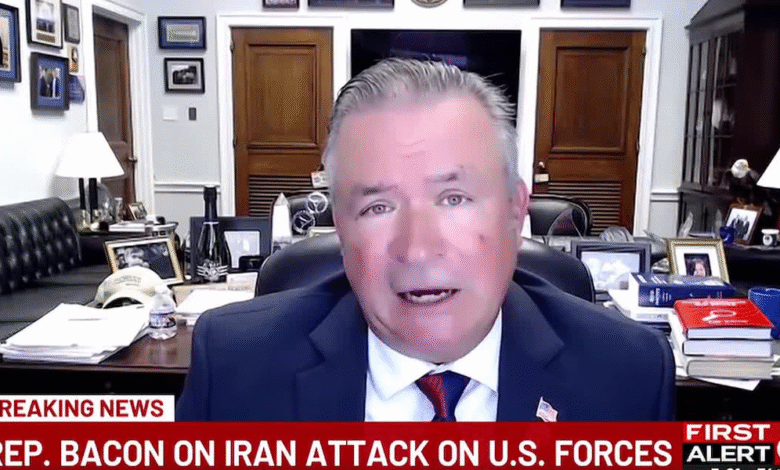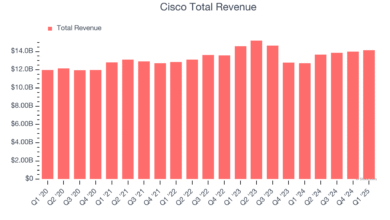Don Bacon Retirement: Omaha District Now Target for Democrats

The anticipated retirement of Rep. Don Bacon marks a significant turning point in Nebraska’s political landscape. As a centrist Republican, Bacon’s departure from Congress opens the door for Democrats to make a strong bid for his pivotal Omaha district, a critical GOP seat in a closely contested House majority. With the dynamics of the Nebraska swing district shifting, the stakes have never been higher for both parties. Democrats are keenly eyeing this opportunity, recognizing it as a vital target in their quest to flip several Republican-held seats. The announcement of Bacon’s retirement adds to the burgeoning excitement surrounding the upcoming election cycle, where every seat will count in the race for control of the House of Representatives.
As Rep. Don Bacon steps away from his role in Congress, the implications for Nebraska’s political arena are substantial. His exit paves the way for potential Democratic challengers to vie for his influential position in Omaha, traditionally a stronghold for GOP support. This vacated seat within the critical swing district highlights the Democrats’ strategy to capitalize on burgeoning electoral chances amid shifting political tides. With the House majority hanging in the balance, this congressional vacancy signals a newfound urgency for both major parties as they prepare for an intensified electoral battle. Bacon’s unanticipated retirement thus emerges not only as a personal milestone but as a pivotal moment in understanding the broader dynamics of U.S. politics.
The Impact of Don Bacon’s Retirement on Nebraska’s Political Landscape
The retirement of Rep. Don Bacon marks a significant shift in the political dynamics of Nebraska’s 2nd District, widely recognized as a competitive swing district. With Bacon’s departure, the GOP loses not only an incumbent representative but also a moderate voice that previously appealed to both Republican and independent voters. This creates a vacuum that Democrats are eager to fill, as they see this as a prime opportunity to turn a traditionally Republican-held seat into a Democratic win. The stakes are especially high, given the current narrow margins in the House where every seat counts towards securing a majority.
Bacon’s tenure has been marked by a blend of bipartisanship and criticism of his own party, particularly regarding controversial figures like former President Donald Trump. His unique position as a centrist Republican has allowed him to maintain support in a district that has shown a tendency to lean Democrat in recent electoral cycles. As Democrats target this GOP seat, they will likely aim to leverage Bacon’s legacy—focusing on the need for leadership that prioritizes bipartisan cooperation in a deeply divided political environment.
Democrats Targeting the Omaha District After Bacon’s Exit
The Omaha district, represented by the retiring Don Bacon, is now under the spotlight for Democratic strategists eager to capitalize on a shifting electoral landscape. The departure of an incumbent provides Democrats an avenue to mount a strong campaign, aligning their messaging with the district’s political demographics. In the 2024 presidential election, Joe Biden’s successful campaign in Omaha—in which he won Bacon’s district by a noticeable margin—serves as a testament to changing voter preferences, making this district a key target for the Democratic party going forward.
Democrats have several potential candidates lined up to challenge the GOP for Bacon’s seat, and they will likely focus on grassroots mobilization coupled with a message that resonates with the electorate’s desire for change. Issues such as healthcare, education, and economic development in urban areas like Omaha will play significant roles in the Democratic campaign strategy. With the national focus turning to house majorities, every vote in a swing district like Nebraska’s 2nd could be pivotal, further reinforcing the need for effective candidate selection and a robust campaign infrastructure.
Strategies for Democrats in Retaking the Nebraska Swing District
As Democrats set their sights on retaking the Nebraska swing district vacated by Don Bacon, they are formulating strategies that embrace both local issues and national sentiments. Campaign efforts will focus on understanding the unique needs of Omaha’s diverse community while also appealing to broader Democratic ideals. Key strategies may include mobilizing younger voters and independents who have previously leaned toward candidates like Bacon, and energizing the Democratic base to ensure high turnout during the elections.
Moreover, Democrats are likely to employ targeted messaging that counters the GOP narrative, particularly emphasizing community issues that resonate with voters in Nebraska’s 2nd District. By highlighting successful policies at the national level that have positively impacted local communities, Democrats can create a compelling case for their candidates, framing them as the best choice for ensuring continued progress and representation in a divided Congress.
The Role of GOP Leadership in Adjusting to Bacon’s Retirement
In light of Rep. Don Bacon’s upcoming retirement, GOP leadership faces the pressing challenge of adapting their strategies to retain control of the Omaha district. Losing an incumbent can diminish party morale and resources, leading to potential vulnerability in what has become a targeted seat for Democrats. The GOP must quickly pivot their messaging and outreach efforts to mobilize support for the next candidate who will carry on Bacon’s legacy of bipartisanship, while still adhering to key Republican values.
To regain footing in this critical swing district, the GOP will likely delve into selecting a candidate who possesses strong local roots and an ability to connect with the constituents in Omaha. Emphasis will be placed on rallying party members and supporters to ensure a robust campaign infrastructure leading up to the elections. The focus will involve a revitalized appeal to Bacon’s previous constituents while also addressing elements of voter disenfranchisement that may have surfaced in recent elections.
The National Implications of a Shift in the Omaha District
The implications of Don Bacon’s retirement stretch far beyond Nebraska, impacting the national landscape of the 2024 elections. This swing district has historically been pivotal in determining the majority in the House, and Democrats targeting this GOP seat reflect their broader strategy to flip necessary seats to reclaim a House majority. With mounting pressure to secure critical seats amid fierce partisan competition, the outcome of the election in Omaha could influence legislative priorities and power dynamics in Congress for years to come.
Furthermore, with both parties keenly aware of the stakes, the battle for this district may draw significant national attention and resources, including campaign funding and high-profile endorsements. This landscape underscores an urgent need for both parties to actively engage voters and ensure that their messages resonate deeply with the community’s needs and values. As the race heats up, expect to see an influx of campaign ads and heightened grassroots efforts aimed at influencing voter turnout on both sides.
Voter Sentiment in the Omaha District Post-Bacon
Post-Bacon, the evolving sentiment among voters in the Omaha district will be crucial in shaping the upcoming election’s outcome. Many constituents may favor fresh perspectives following Bacon’s retirement, particularly among those disillusioned with traditional party politics. Factors including local economic conditions, public health responses, and social issues will heavily influence voter emotions, likely propelling candidates who demonstrate a commitment to addressing these key challenges.
Engaging with community concerns will be paramount as candidates from both parties attempt to capture the hearts and minds of Omaha voters. Democratic candidates, in particular, will need to effectively articulate their plans to improve the quality of life in the district, spotlighting how their policies endeavor to meet the community’s aspirations. Understanding the nuances of voter sentiment and responding with thoughtful, action-oriented proposals will be essential in winning over constituents who are ready for change.
Key Issues that Will Determine the 2024 Election in Nebraska’s 2nd District
As the Omaha district prepares for its pivotal election in 2024, several key issues are expected to dominate the political discourse and influence voter decisions. Among the main concerns are healthcare accessibility, economic equity, and education reform, all of which directly affect the daily lives of residents. In light of Don Bacon’s retirement, candidates will likely propose innovative solutions to these problems while also highlighting their own values and commitments to the community.
Another significant issue is the response to recent national events, including economic policies affected by the pandemic, providing candidates an opportunity to differentiate themselves from each other. This district’s mixed voting history means that both parties must appeal across the aisle, particularly in the polling conversations surrounding healthcare and local economic support, which resonate strongly with Omaha voters. Engaging with constituents on these pressing topics will incentivize voter participation and can be decisive in reclaiming or retaining this essential seat.
Potential Candidates for the Vacant Omaha District Seat
With Don Bacon announcing his retirement, several potential candidates are already emerging to compete for the now-vacant House seat in Nebraska’s 2nd District. Both Democratic and Republican parties are bracing for a competitive primary season, with candidates from various backgrounds eyeing the opportunity to serve in a district that has shown fluctuations in party preference. The GOP will be keen on finding someone who can replicate Bacon’s ability to appeal to centrist voters, while the Democrats will be searching for candidates who can energize their base and direct attention to the community’s needs.
Prospective candidates will need to navigate a complex socio-political landscape that balances party loyalty with the diverse values of constituents. The dynamic between potential candidates could make this race particularly interesting, as grassroots movements for both parties are likely to gain traction following Bacon’s departure. Engaging authorship in this political narrative will be pivotal for candidates as they position themselves to tap into the grievances and hopes of voter sentiments in a swing district historically swayed by the overarching national political currents.
Campaign Strategies in a Competitive Election Cycle
In anticipation of a highly competitive election cycle, candidates vying for Don Bacon’s former seat will need to deploy sophisticated campaign strategies aimed at addressing the multifaceted issues facing voters in Omaha. Utilizing a mix of traditional canvassing, social media outreach, and public forums will be paramount for candidates aiming to establish a personal connection with potential voters. Candidates must also be prepared to rapidly adjust their tactics in response to polling data and shifting public sentiment as the electoral campaign unfolds.
Moreover, fundraising will be a critical aspect of any successful campaign. Candidates will have to leverage both grassroots donations and larger campaign funding sources to bolster their visibility and outreach efforts. With the spotlight on Nebraska’s swing district, candidates will also seek endorsements from prominent party figures and local influencers to enhance their credibility and attract undecided voters. Building a robust campaign infrastructure will be essential for navigating the challenges of a dynamic electoral landscape, especially following Bacon’s exit.
Frequently Asked Questions
What does Don Bacon’s retirement mean for the Omaha swing district?
Don Bacon’s retirement opens up the highly competitive Omaha swing district, which is now a key target for Democrats. Without an incumbent advantage, this GOP seat becomes more vulnerable, making it crucial for the House majority dynamics.
How will Don Bacon’s retirement impact the upcoming elections in Nebraska’s 2nd District?
With Don Bacon retiring, the Omaha district’s GOP seat lacksa sitting incumbent, making it a prime target for Democrats. This development could significantly influence the elections as parties strategize to gain the House majority.
Is Don Bacon’s retirement a signal for Democratic strength in Nebraska’s swing district?
Yes, Don Bacon’s retirement highlights a potential opportunity for Democrats in Nebraska’s swing district, especially given recent electoral trends where they performed well in this GOP seat, suggesting a shift in voter sentiment.
Who may replace Don Bacon in Nebraska’s 2nd District after his retirement?
The field to replace Don Bacon in Nebraska’s 2nd District is likely to be competitive, with potential candidates from both parties gearing up to contest this vital GOP seat, especially since it is now a focal point for Democrats aiming to flip the House.
What are the implications of Don Bacon stepping down for the GOP’s hold on House majority?
Don Bacon’s retirement from his Omaha district may weaken the GOP’s hold on the House majority, as Democrats are focused on flipping important swing districts like his, which previously supported bipartisan candidates.
What factors contributed to Don Bacon’s decision to retire from Congress?
While specific reasons for Don Bacon’s retirement are not disclosed, political shifts in Nebraska, particularly in swing districts influenced by recent elections, may have played a significant role in his decision.
How did the election results in 2024 affect Don Bacon’s retirement decision?
In the 2024 election, Democrats, including then-Vice President Kamala Harris, won in Bacon’s Omaha district, suggestive of a changing political landscape that may have influenced his decision to retire.
| Key Points |
|---|
| Rep. Don Bacon, a centrist Republican from Nebraska, is set to retire from Congress, opening the door for Democratic candidates. |
| Bacon’s Omaha district is a targeted area for Democrats, especially in a tight electoral cycle where every seat matters. |
| The lack of an incumbent puts the GOP at a disadvantage in the upcoming election for the Nebraska 2nd District. |
| Bacon’s district has shown a trend toward Democratic candidates in recent elections, with Biden and Harris both winning. |
| Bacon has been one of the few GOP members critical of President Trump, positioning him apart from the national party. |
Summary
Don Bacon’s retirement marks a significant shift in Nebraska’s political landscape. As a centrist Republican, his exit from Congress offers a prime opportunity for Democrats to capitalize on the Omaha district in upcoming elections. With recent trends showing Democratic victories in the area, the absence of an incumbent like Bacon could be crucial for shifting the balance in the closely contested House of Representatives. Democrats aiming to gain ground will undoubtedly focus on securing this key battleground seat, making Don Bacon’s retirement a pivotal moment in the race.




